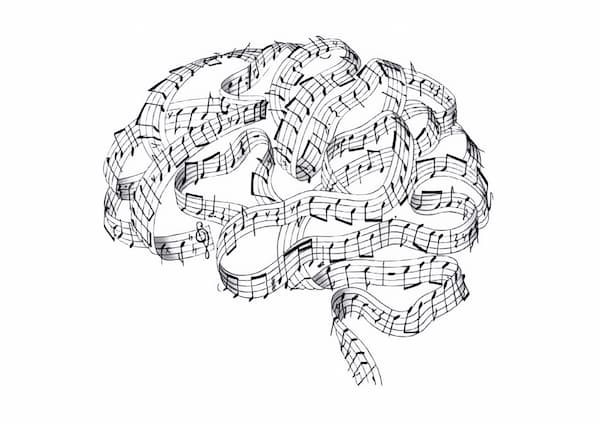Stage fright – that unsettling mix of nervous energy, self-doubt, and racing heartbeats – is a common experience among musicians, who are still finding their confidence. Whether it’s an open mic night, a local recital, or just playing for friends, the fear of making a mistake or being judged can be overwhelming. But what if we told you that science has answers to help you manage and even embrace this nervous energy? In this article, we’ll explore the psychological roots of stage fright and evidence-based techniques to transform anxiety into a performance-enhancing tool.

Where Does Stage Fright Come From?
Performance anxiety, or stage fright, is deeply rooted in human biology. It’s an evolved response known as the “fight-or-flight” mechanism, a survival instinct that prepares our body to react to threats. In ancient times, this reaction helped our ancestors escape predators. Today, the same physiological response—racing pulse, shallow breathing, sweaty palms—kicks in when we perceive social threats, such as the fear of being embarrassed or making a mistake in front of an audience.
Neuroscientists have identified the amygdala, the brain’s emotional processing center, as a key player in triggering this fear response. When we stand in front of an audience, the amygdala sends signals that release adrenaline, increasing our alertness but also making us jittery. While this response can be useful in dangerous situations, it often works against us in performance settings. So, how do we retrain our brains to work with us instead of against us?
Breathing, Mindfulness, and Mental Reframing
The good news is that research in psychology and neuroscience has uncovered practical ways to rewire our response to performance anxiety. Here are some of the most effective techniques:
1. Breathing Techniques: Calming the Nervous System
Controlled breathing can counteract the effects of adrenaline and activate the body’s parasympathetic nervous system, which promotes relaxation. Studies have shown that slow, deep breathing helps regulate heart rate and reduce stress hormones. One simple technique is the 4-7-8 method: inhale through the nose for four seconds, hold the breath for seven seconds, and exhale slowly for eight seconds. Practicing this before stepping onto the stage can create a sense of calm and control.
2. Mindfulness: Staying Present in the Moment
Mindfulness, the practice of being fully present without judgment, has been shown to reduce performance anxiety. Neuroscientific studies suggest that mindfulness training strengthens the prefrontal cortex, which regulates emotional responses, making it easier to manage nerves. Musicians who engage in mindfulness exercises, such as focusing on sensations while playing or practicing body scans, report feeling more connected to their music rather than their fear of judgment.
Great music for your breathing and mindfulness exercises:
Mindfulness Meditation Music for Focus, Concentration to Relax
3. Cognitive Reframing: Changing Your Perspective
One of the most powerful shifts in overcoming stage fright is altering how you perceive nervousness. Research in sports psychology suggests that reinterpreting anxiety as excitement can enhance performance. Instead of seeing a racing heart as a sign of impending failure, musicians can view it as a sign of readiness. Olympic athletes and concert pianists alike have trained themselves to say, “I’m excited to perform” instead of “I’m scared,” which changes the brain’s response and improves focus.
Embracing Nerves as Part of the Performance
A common misconception is that professionals don’t experience stage fright. In reality, even the most seasoned musicians feel nervous before performing. The difference? They’ve learned to channel it into their playing rather than let it paralyze them.
Studies show that moderate levels of stress can actually improve performance by sharpening focus and increasing motivation. Psychologists call this the Yerkes-Dodson Law, which suggests that an optimal level of arousal enhances performance, while too much or too little hinders it. The key is to find your sweet spot—enough excitement to energise your playing, but not so much that it overwhelms you.
Final Thoughts
Stage fright is a universal experience, but it doesn’t have to control you. By understanding its biological roots and applying science-backed techniques—breathing exercises, mindfulness, and cognitive reframing—you can transform performance anxiety into an asset rather than an obstacle. The next time you step onto a stage, remember: your nerves mean you care, and with the right approach, they can become the fuel for an unforgettable performance.
So take a deep breath, trust your preparation, and let the music take over.
Stage fright: Don’t get over it; get used to it. | Anwesha Banerjee
For more of the best in classical music, sign up for our E-Newsletter




